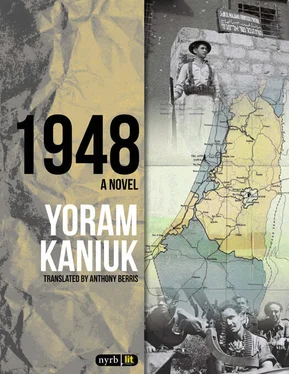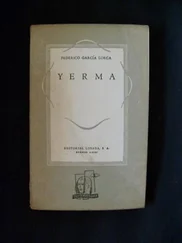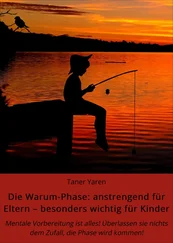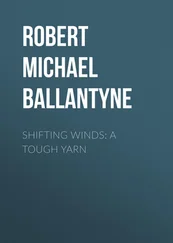Right after our sea training we went off to fight in the Jerusalem and Judean hills. So I’d said I’d enlisted to bring Jews, so what? Did I really think that the boats would reach the Port of Jerusalem that’s buried alive between the desert and the green landscape and Bab el-Wad*? And even before that, our absurd teachers had gone on at us and stuffed our minds with building and being built in the Land of Israel, but we didn’t really understand what it meant. After all, we were born here. With the thistles. With the jackals. With the carts harnessed to blinkered mules, and the prickly pears, and the pomegranates, and the cypresses with their beautiful foliage, so how do you actually build and be built?
Here and there one heard talk of a Jewish state. The concept of “state” didn’t ring true, it didn’t sound real, since when, after two thousand years, had our people had a state? And what kind of a state would it be? What would this little state be like? Liechtenstein, the Congo? And what, would Ben-Gurion wear a top hat and stand on a box like Herzl on the balcony in Basel so as to look tall? And would a Jewish policeman blow a whistle or a shofar, a ritual ram’s horn?
In an old volume hidden behind my father’s German books — highlighted in red ink and written in the cursive Rashi script he liked to use with that latent spark of a Galician Jew who thought he’d been born in Berlin and who sometimes sang Jewish prayers between Schubert and Brahms lieder — I found the story about the Rabbi of Ladi who fought a historic battle with the Rabbi of Konitz over the possible conquest of Moscow by Napoleon. They had to decide, once and for all, whether or not this conquest was good for the Jews, and since the fate of the Jews was about to be sealed, the vigorous Rabbi of Ladi, who was so concerned by the magnitude of the task that tears flowed from his eyes, summoned the Rabbi of Konitz to the synagogue to decide what would be good for the Jews. Something happened, the Rabbi of Ladi was somewhat late and the Rabbi of Konitz got there before him, took his shofar and started to blow it, and the Rabbi of Ladi ran inside, snatched the shofar from his hands together with the blast from the Rabbi of Konitz’s shofar, and that’s what caused Napoleon’s defeat at Moscow and decided the fate of the Jews.
That’s what happened to us. We went off to bring Jews by sea and ended up establishing a state in the Jerusalem hills. It’s a mistake to think that we fought for the establishment of this state. How were we to know how you establish a state? Had anybody done it before us? Nonsense, a Jewish state was the blast snatched from the shofar of others, and yes, somehow with the power of a miracle that was actually the act, the sound of the shofar reached its destination. For when the Palmach* took Safed (I wasn’t there), the town’s rabbi said that Safed had been saved by a miracle and deeds: the deeds were prayers and the miracle was that the Palmach arrived. We were charged with miracle making. A state was a vague, even ridiculous notion. The first thing we know about the history of our people was the patriarch Abram fleeing from his homeland because he heard God, not Moses’s god but another Canaanite god, say to him, Get thee out of thy country! So how could we know what love of country is? And of all the peoples in the world that didn’t think of fleeing from their homeland for two thousand years, we should suddenly become a people that loves a land of its own, that isn’t its own, and establish a state in it? We’re a people of suitcases, of wandering, of yearning for a place we were never in. Abram comes and finds famine in the land of his dreams and right away goes down to Egypt to sojourn there and returns after a long time, the way an American Israeli of today returns with great wealth from California, for the God of the Hebrews got tired of creating worlds and decided to create a new Hebrew world and started it in heaven and only later it came to Earth, since states do not dwell in heaven. So we’ll build a state of nomads? We — the serfs of the Almighty, whom we despised, for whom “Abroad” was the name of some country, and we only knew about real countries from our stamp collections, and for us, because of the stamps’ size and beauty, Luxembourg was bigger than the United States, and if we’d learned anything about countries we’d learned how to aspire to one but not how to establish it, especially if it were to be created in a hostile region like ours — we would establish it? But what did they say back then when they wanted to play with words? Ha-ikar, bat ha-ikar. Beikar kesheha-ikar eino babayit . (The main thing is the farmer’s daughter. Especially when the farmer’s not home.)
And it must be remembered that with us was that sweet lunatic Benny Marshak, the secular Hasid political commissar who dreamed of a Jewish state, and caught cold from yearning so much for a state, and vilified the enemies of Israel even in his sleep, and who came with us from Caesarea — where we were waiting for the illegal immigrants who didn’t come— to the war in the hills that came with a vengeance, and who’d shout over and over — he knew how to shout — that we should establish a state for him already, and we thought, Poor guy, he loves a nonexistent state, and if it is established, it’ll probably be Afula, which at the time was the only city, even if all its buildings were outside it, and which was actually a bus stop on the way to the Valley of Jezreel or a toilet stop on the road to Haifa. Poor Benny really and truly had waited two thousand years plus a few days, whose duration isn’t written in any ledger. So we went along with him because he hadn’t slept for two months, and we’d checked, we’d spied on him, he really hadn’t slept, eaten, drunk, or washed (we could feel the last item even without spying on him), and all the time he was busy with establishing a state that nobody before him had seen what it looked like, and when he tried to describe it he’d tremble with the tears choking him and yell excitedly. And when he’d had it with all his yearning and we thought that something must really be done about it and a state should be established for Benny so he’d get off our back, we were stuck on some hilltop strongpoint, I don’t remember which, and a good-looking boy, whose name I’ve forgotten, straightened up for a moment and took a direct hit from a three-inch mortar shell that sliced him, actually sliced him, as if it were a sharp knife, and we saw his body split into two parts that fell to the two sides it had beforehand, when he was good-looking and not a bleeding human salami as he was now. And the blood flowed. We covered him with our long, heavy, woolen army coats, which in belles letters were called greatcoats, and somebody asked who he was, perhaps a new immigrant who’d fallen in with us, and we fell asleep.
It was cold without our greatcoats. We heard sudden shouting. Not shouting, but wild yelling. Somebody came and woke us up in the terrible darkness, and weeping and laughing told us in a hoarse voice that someone had heard on a battery radio that Ben-Gurion had established a state, and then said, Come, let us arise and sing “Hatikva*” (they used forms like that back then), and we told the jerk, Crap! We don’t even know the words, and anyway, where has Ben-Gurion established his state? And he said he’d heard that he’d established it in Tel Aviv, and we said, Look, we’re under siege here, in Jerusalem, we’re in Bab el-Wad and there’s no state here, and Jerusalem isn’t in the State of Tel Aviv, and we fell asleep.
Early the next morning, at four or five, Benny Marshak loomed out of the mist, and we noticed that he looked like he’d shed two thousand years plus a few days. Suddenly he was young, dauntless, and laughing, leaping upon the mountains, skipping upon the hills, and singing, and for a moment I thought that even his odor of ancient sweat had dissipated. But he carried on, not even noticing the sliced boy on the ground covered with greatcoats. He stood to attention and stood at ease, his hair tangled, and he tried to sing “Hatikva” and what came out was the hoarseness of an Eretz Yisrael generation which thought that the louder you shout the righter you are. Standing steadfastly, planted in the soil, barely moving, he began dancing a clumsy, heavy-footed hora they’d brought with them from the Diaspora, a hora of Hasidim, and he danced in threadbare khaki pants with a Parabellum-Pistole strapped to his waist, because back then you only trusted God with a gun in your hand, and it was a hora of one man multiplied by two thousand years plus a few days, and he leapt and swayed and yelled, “God will build Galilee / God will build Galilee”; and we told him, We’re in Jerusalem, and one of us, still asleep, suddenly began declaiming the poem: “Man was born to die / The horse was born to foal / If you’ve climbed a pole / Then you’re bound to fall.” And Benny Marshak yells, Insolent rascals, what are you thinking of? This is a historic moment! The most historic moment in two thousand years! And then he suddenly starts crying and we get up and join him. I don’t want to, I’m tired, but Benny is begging and grabs me with a hand that’s strong from forty years in the kibbutz, and in the middle of nowhere, at four or five in the morning, in the asshole of the world, next to a body that had begun to stink, on a pissant hilltop, amid the firing, a few young idiots are dancing and yelling “God will build Galilee” in Jerusalem that had never seen Galilee, yelling “A Jewish state, a Jewish state,” and as we dance I start trembling, my eyes close, I stick matches between my eyebrows and cheeks but fall asleep as I dance, and Benny runs off to tell some other guys. Afterward we carried the sliced guy to Kiryat Anavim*, handed him over to the kibbutz oldsters who were in charge of burials, and slept a while. When we were awakened we were sent off to fight another battle and again we forgot why, and that was the funniest thing that happened to me in that war, that I established a state while asleep and dancing the hora next to an unknown comrade who’d been sliced into two.
Читать дальше












